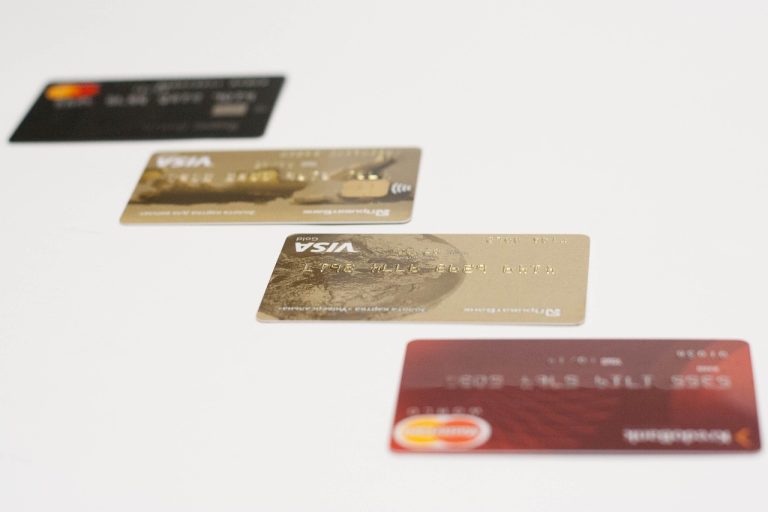Starting a business is exciting, but managing the money part can feel confusing fast. There’s rent to think about, supplies, software, and maybe even travel or hiring. When all those payments start adding up, it helps to have a tool that makes things easier to track and organize—and that’s where a business credit card can really help.
A lot of new business owners think they don’t need one yet. Some even use their personal credit card for business expenses. But that can get messy, fast. Mixing personal and business spending makes it harder to track what’s what, and it can cause issues with taxes, accounting, and even credit scores.
Credit Cards Aren’t Just for Big Companies
Business credit cards aren’t just for big corporations. Even small businesses and brand-new startups can apply for them. In fact, having one early can make things a lot smoother. The card helps keep business spending separate from personal stuff, which is important for staying organized and keeping records clean.
Plus, it gives a clear picture of how the business is actually doing. It’s easier to see how much money is going out each month, where it’s going, and what kind of patterns are showing up. That’s hard to do when purchases are scattered across personal cards, bank accounts, and cash.
And here’s something useful—some cards don’t even ask for a personal guarantee. That means you won’t be personally on the hook if something goes wrong. There are tools out there designed with new businesses in mind. If you’re curious, there are also options for business credit cards for new businesses that make it easier to start building credit and managing spending right away.
Why It’s Better to Keep Business and Personal Separate
Using one credit card for everything might seem easier at first. But once tax season rolls around—or if the business starts growing—it gets confusing fast. When personal and business purchases are mixed, it takes way longer to figure out what counts as a business expense. That’s not only annoying, it can also lead to mistakes that cost money.
Having a business credit card keeps everything in one place. All business-related charges go on that card, so there’s a clear record of where the money is going. That helps with budgeting, filing taxes, and even working with an accountant.
Also, using a business credit card builds credit for the business itself. This is a big deal. Good business credit can help with getting approved for loans, opening lines of credit, or even getting better deals with suppliers later on.
What Makes a Business Credit Card Different?
At first, a business credit card might seem a lot like a personal one. Both let you make purchases, pay later, and possibly earn rewards. But business cards usually come with features made for companies, even small ones.
For example, many let you create spending limits for different team members, so if more people join your business later, it’s easier to control how much they can spend. Some cards also give you tools to track receipts, categorize purchases, or connect with your bookkeeping software.
There may also be different reward programs that make more sense for business purchases—like extra points on office supplies or software instead of restaurants or movie tickets.
And while some business cards do check your personal credit during the application process, many don’t report to personal credit unless you miss payments. That helps protect your personal credit score, which is great if you’re also working on personal financial goals.
What to Watch Out For
Not all business credit cards are the same, so it’s smart to check the details before applying. Some cards have fees or high interest rates. Others might not offer much help with tracking or reporting.
For a new business, it’s usually best to look for a card with:
- No personal guarantee (or low risk)
- Low or no annual fees
- Useful spending tools
- Easy integration with accounting software
- Clear terms so you’re not surprised by interest or penalties
Also, make sure the card fits your actual needs. If the business doesn’t travel much, travel points won’t be helpful. But if there’s a lot of software or supply spending, a card that rewards those kinds of purchases could be a better fit.
How to Set It Up the Right Way
Once a card is approved, it’s important to use it the right way. That means setting clear rules if anyone else is going to use it, keeping receipts or notes on what each charge is for, and checking the statement regularly to make sure nothing looks off.
It also helps to pay off the balance each month, or as often as possible, to avoid interest. Carrying a balance can get expensive fast, especially if the business is still getting steady cash flow figured out.
Many cards come with mobile apps that make this part easier. Some even let you upload receipts or track purchases in real-time, which helps cut down on guesswork later.
A Small Step That Helps Long-Term
Getting a business credit card might seem like a small thing, but it can really help set up better habits early on. When money is organized, it’s easier to make smart decisions. And when business credit is being built from the start, it opens more doors down the line.
Even if the business is brand new or just getting off the ground, having the right financial tools in place can make everything run smoother. It’s one of those things that feels small at first, but makes a big difference later.
What to Take Away
A business credit card helps keep spending organized, separates personal and business money, and builds credit for the business itself. For anyone just starting out, that kind of setup can make things way easier to manage—and a lot less stressful.
If the goal is to grow the business and stay in control without worrying about mixing everything together, a business card designed for startups could be a smart place to begin.






